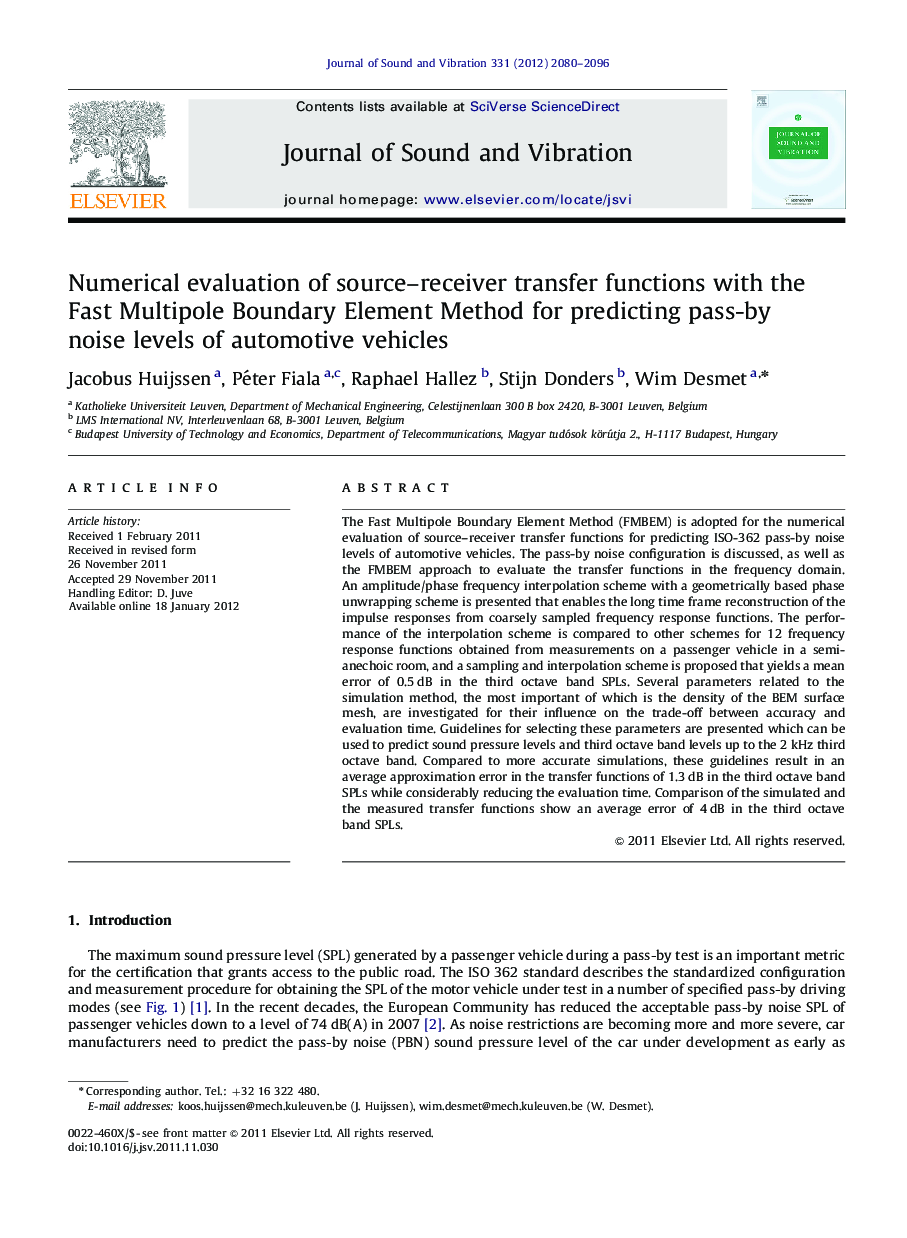| Article ID | Journal | Published Year | Pages | File Type |
|---|---|---|---|---|
| 288783 | Journal of Sound and Vibration | 2012 | 17 Pages |
The Fast Multipole Boundary Element Method (FMBEM) is adopted for the numerical evaluation of source–receiver transfer functions for predicting ISO-362 pass-by noise levels of automotive vehicles. The pass-by noise configuration is discussed, as well as the FMBEM approach to evaluate the transfer functions in the frequency domain. An amplitude/phase frequency interpolation scheme with a geometrically based phase unwrapping scheme is presented that enables the long time frame reconstruction of the impulse responses from coarsely sampled frequency response functions. The performance of the interpolation scheme is compared to other schemes for 12 frequency response functions obtained from measurements on a passenger vehicle in a semi-anechoic room, and a sampling and interpolation scheme is proposed that yields a mean error of 0.5 dB in the third octave band SPLs. Several parameters related to the simulation method, the most important of which is the density of the BEM surface mesh, are investigated for their influence on the trade-off between accuracy and evaluation time. Guidelines for selecting these parameters are presented which can be used to predict sound pressure levels and third octave band levels up to the 2 kHz third octave band. Compared to more accurate simulations, these guidelines result in an average approximation error in the transfer functions of 1.3 dB in the third octave band SPLs while considerably reducing the evaluation time. Comparison of the simulated and the measured transfer functions show an average error of 4 dB in the third octave band SPLs.
► Numerically evaluated transfer functions allow early ISO-362 pass-by noise prediction. ► A geometric phase unwrapping algorithm improves the interpolation of the FRFs. ► The proposed method and model settings yield a computing time of about one day. ► Mean and maximum third octave band errors of the FRFs are 1.3 dB and 3.7 dB.
